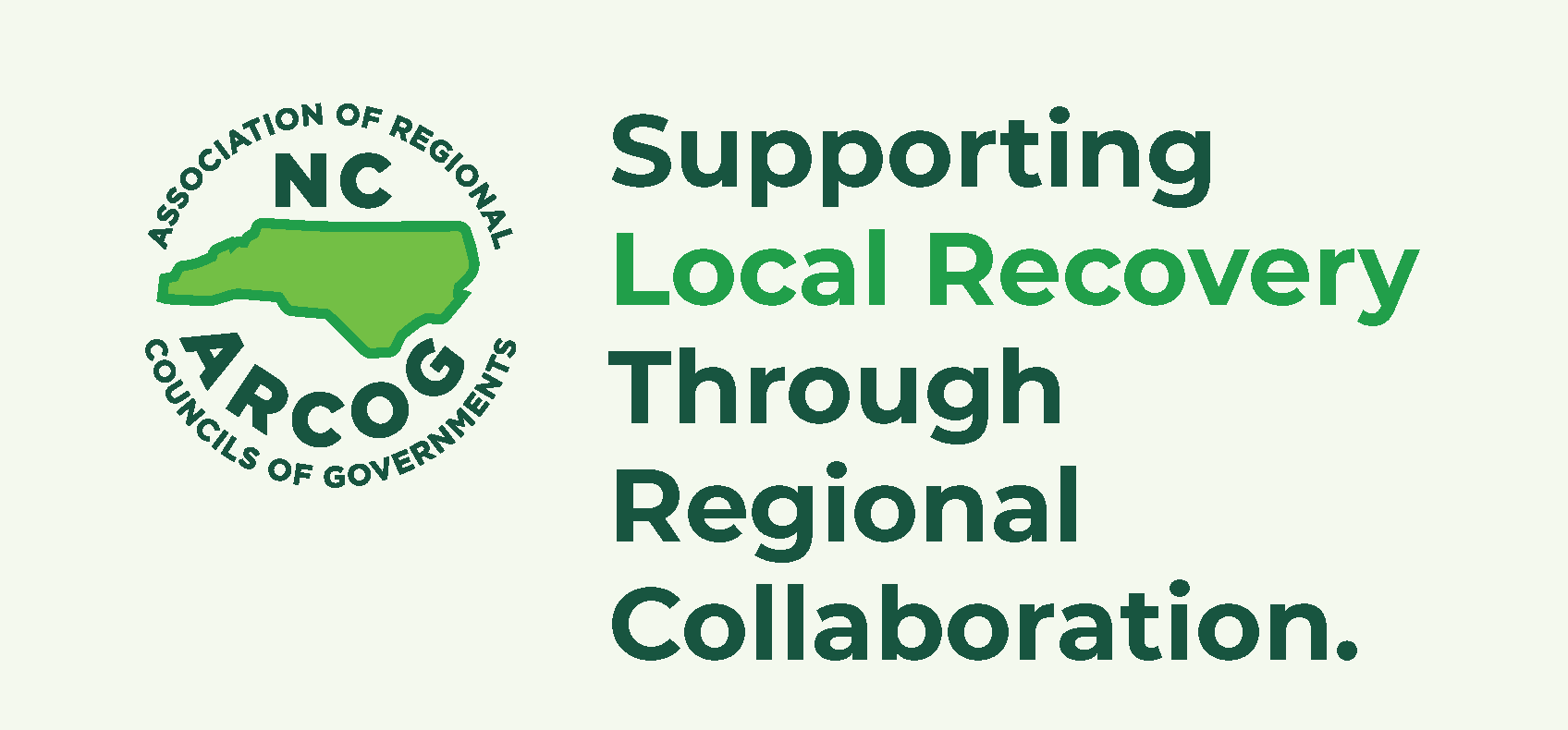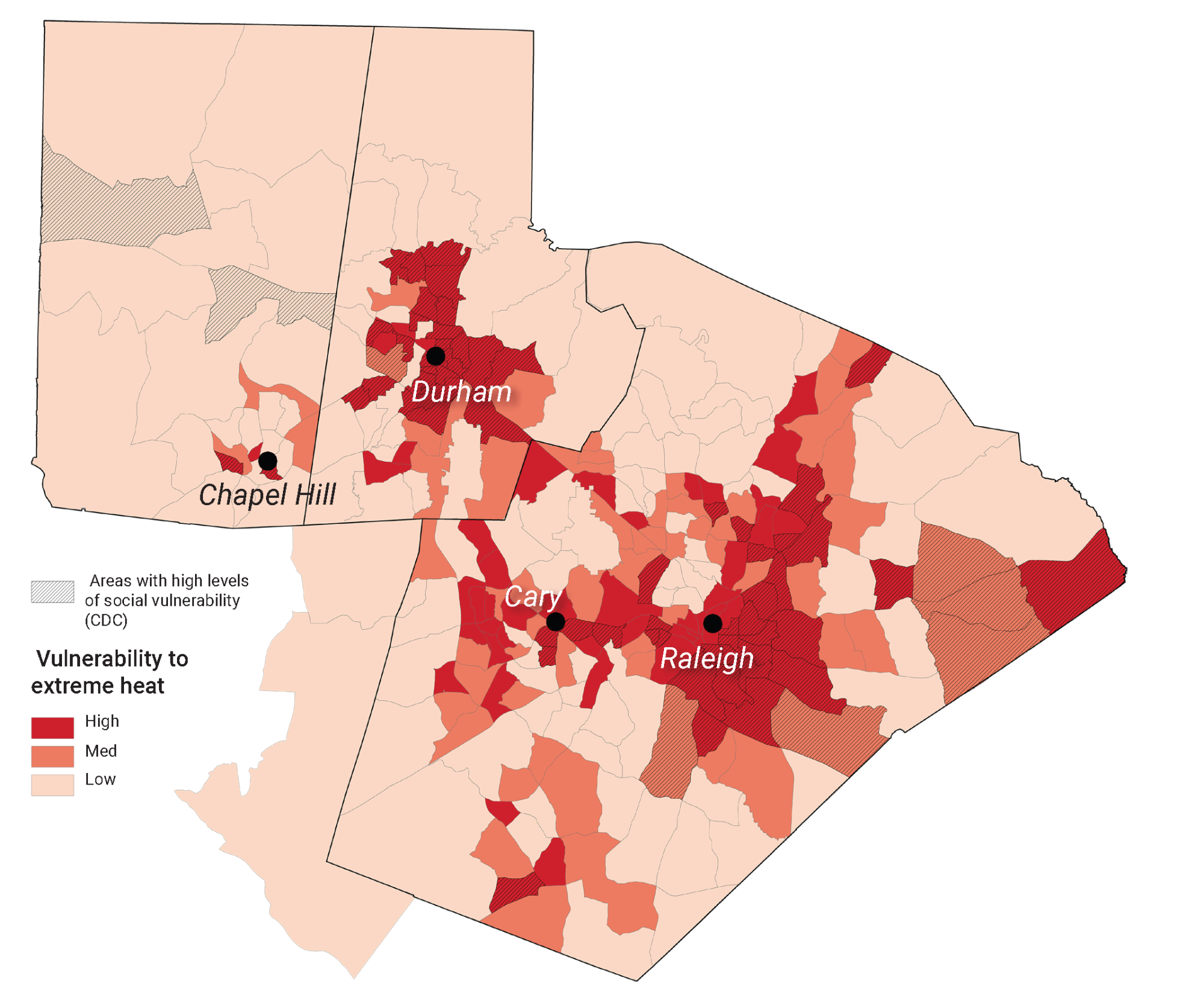Central Pines works to produce useful, data-driven, and locally focused reports, resources, and data that cover the wide range of topics and issues that our communities face each day. From economic development and housing development, to human services and environmental impacts, we strive to make as much of our material available for you to explore and use.
CPRC maintains regular, active engagement with our state and federal legislative offices and with key government agencies to advance the interests of our organization and our member communities. We advocate in two main ways: For CPRC itself, to support our programs, operations, and funding, and for our local governments, to support federal policy that advances the needs of our region. We do this work in partnership with our government affairs firm, Strategics Consulting. Together, we develop a formal federal action plan each year. This plan clearly states our policy and funding priorities, and targets areas where there is a realistic opportunity to secure funding or policy support.
This year’s Federal Action Plan builds on last year’s foundation that was adopted by the Board of Delegates and goes further by clearly defining our policy priorities.
Regional Day is an annual event for elected officials and managers in the Central Pines Region, hosted by Central Pines Regional Council. The purpose of this event is to provide valuable knowledge and insights that will help elected officials and managers thrive in their roles, deepen their understanding of our region, and network and build relationships with neighboring colleagues and critical partner organizations.
Presentations and panel discussions covered historical context and data showcasing our region's growth and the value of partnerships between communities. Attendees explore the vision for our region and the implications of regional growth.
You can view the presentations from Regional Day 2025 below. Topics include: 1) Growth & Planning in the Central Pines Region, 2) Recruiting & Retaining Local Government Managers, and 3) CPRC's Regional Data Center.
This power point is an overview of the history of transportation planning in the Central Pines Region. See how the region has changed and grown over the last century and projections for future growth. This presentation was given at the 2024 Regional Day for newly elected officials.

This overview of the Inflation Reduction Act's new Clean Energy Tax Credits focuses on the IRS's newly proposed "Elective Pay" (aka "Direct Pay") rules. This highly anticipated financial mechanism provides a historical opportunity for local governments to benefit from clean energy operations and investments.
Elective pay makes certain clean energy tax credits effectively refundable. With elective pay, an eligible entity (such as a local government) that qualifies for a clean-energy investment tax credit can notify the IRS of its intent to claim the credit and then file an annual tax return to claim the full value of the credit. The IRS would then pay the local government the value of the credit.
The federally-funded low-income housing tax credit program is a critical resource for funding affordable housing. This spotlight provides background on the program, including its benefits, best practices for local governments to incentivize the use of the tax credit, and insight into how the City of Raleigh and Wake County participate in the program.

Use this resource to find the Area Agency on Aging’s service partner contact information and a list of each member’s respective Home and Community Care Block Grant (HCCBG) funded and related services.
The state-designated county tier system used to categorize and group counties by level of economic distress has been an obstacle to economic development for many Central Pines Regional Council member governments. This analysis reviews how these designations effectively hide municipalities experiencing economic distress within more prosperous counties. Short-term and long-term recommendations are included to reevaluate how economic development is pursued in the region.
The Triangle Regional Resiliency Partnership provides a venue for municipalities and counties to organize and build strategies towards economic, social, and environmental resilience in communities and across the region. This resource provides additional context about the regional partnership, including membership and goals.

Voluntary inclusionary housing ordinances can be used by local governments to increase the stock of affordable housing. This resource provides context on inclusionary housing or zoning in North Carolina, including its tradeoffs, guidance on how to effectively use inclusionary housing programs, and insight into the Town of Chapel Hill’s program.

Effective Ways to Talk About Housing frames affordable housing needs in the Triangle region and provides tips on how to effectively discuss affordable housing.

Through a $16M allocation of American Rescue Plan funding from the NC General Assembly, the statewide COG network has been able to provide extensive support to local governments for COVID-19 recovery efforts and long-term resilience planning.
This report examines the first year of work by Central Pines and our fifteen peer organizations across the state to
- assist local governments in effectively planning for federal COVID-19 response and recovery funding to ensure this once-in-a-generation investment brings meaningful impacts to North Carolina communities;
- build local capacity for long-term recovery: build capacity to guide the successful implementation of local investments funded by ARPA and other federal recovery funds;
- facilitate regional collaboration: convene members in regions across the state to collaborate and share resources generated by COGs, Statewide Partner Organizations, NCPRO, and US Treasury.

In order to better understand the changing realities in the Triangle, including increasing extreme weather events, temperature, frequency and duration of droughts, and population and related demand for resources, CPRC facilitated the Triangle Regional Resilience Partnership of cities, towns, and counties in the urban core of our region. Together, the partnership performed a quantified assessment of the region and identified which assets are more vulnerable to these changes and provides guidance and potential solutions.
Central Pines Regional Council distributed a public sector employee survey to members across the region in Fall 2022 to gauge workplace morale and the well-being of employees. This report presents the results of the survey, and specifically identifies factors that impact worker well-being, including compensation, opportunities for professional development, and relationships with the community.
Central Pines Regional Council aims to encourage the use of sustainable building materials in new construction. This report outlines initiatives that local governments can adopt to incentivize sustainable building, including organizing a citizen advisory committee, offering density bonuses, and providing educational materials related to sustainable materials.

Local Regulation of Short-term Rentals reviews the local regulations of short-term rentals adopted by five municipalities in North Carolina. In the ordinance review, regulations around eight topics–definitions, registration, specified districts, parking requirements, insurance or safety concerns, occupancy limits, on-site hosts, and penalties–are compared across the municipalities.

This report looks at affordable housing developments–both publicly-supported and market-provided–that could be served by a passenger rail investment between West Durham and Clayton. The analysis can be used to inform decisions on economic development, land use, and affordable housing.
This report gauges how well a passenger rail investment between West Durham and Clayton can meet the demand of the regional travel market i.e. taking people where they want to go, when they want to go. It focuses on how the investment could connect people to jobs, services, and opportunities.
A One Water water management works to improve environmental, societal, and economic aspects of the watershed, and aims to preserve long-term resilience and reliability of the system. This report presents a vision for how a One Water approach could be applied to the Jordan Lake Watershed to meet community needs, while considering regulatory implications.
